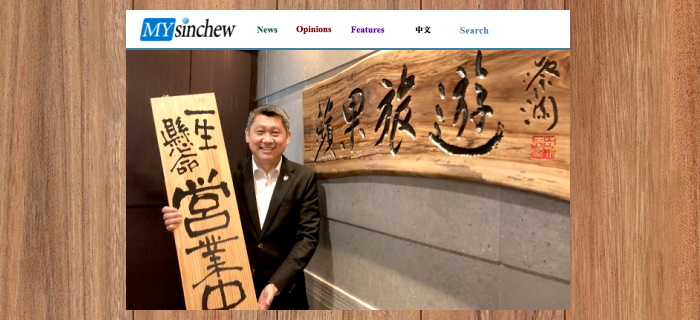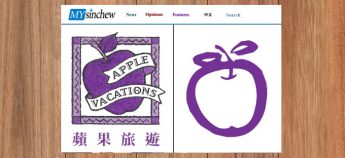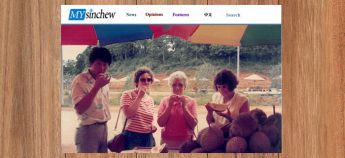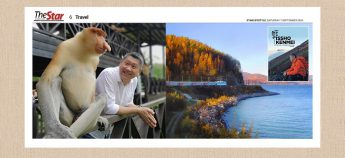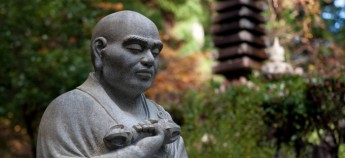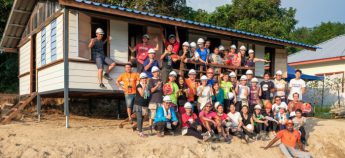[Isshōkenmei] Giving my best shot (1) – Leesan
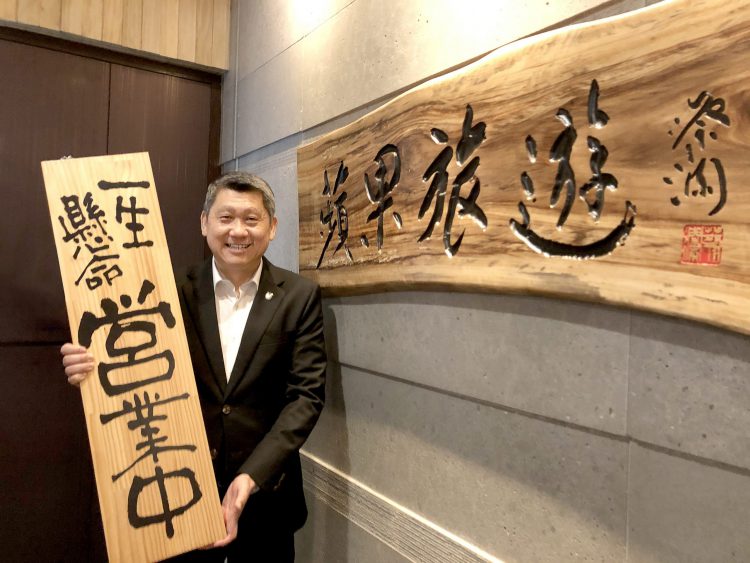
Leesan, a lifetime travel worker.
On the fifth floor of the company is the major entrance foyer for guests designed to look like a Japanese art house. Even our visiting Japanese guests marvel at it. At the entrance hangs an eye-catching plaque with four Japanese Kanji characters “一生懸命” (giving my best shot)
That was a gift designed specifically by a very close friend of mine, Nakagawa-san, owner of an onsen resort in Japan’s Mie prefecture. He insisted that the four words embody the craftsmanship spirit.
Never give up
In 2014, when the company was relocated to Wisma Apple here, Nakagawa-san flew all the way from Kansai to hang the plaque up for me.
“一生懸命”, pronounced as Isshōkenmei (いっしょけんめい), means insistence in working hard and doing one’s best to achieve a meaningful and fulfilling life. As a matter of fact, I feel that these four words so aptly describe the experiences I have gone through all these years: give my best shot persistently and never give up even the faintest hopes.
This is only a minor episode in my entire career, but each time we have a visitor, my staff at Apple Vacations will tirelessly explain how this plaque has come about. Sometimes people may ask: How did it come here? And I would make mention over and again of those days studying and living in Japan. This has actually given people an impression much later that Apple Vacations is synonymous with Japan tour specialist, and the listeners are invariably fascinated by the little tales I told.
Work doubly as hard, rain or shine
As for me, each time before I step into the office, I would tend to take a glance of it, murmuring inside my heart “Isshōkenmei” as if to subconsciously remind myself (and my staff) that we must work doubly as hard each day, rain or shine.
I have to agree that almost everything in my career is in one way or another linked to the “勉强日本” spirit. In Japanese, “勉强” (benkyō) means study or learn.
As a matter of fact, it is the life I went through in Japan that has progressively nourished my growth, helping me gain full comprehension of the essence of being a Japanese.
I went to Japan for work study in 1991, and spent the following five years there. At that time the exchange rate was 100 yen to RM2.90 (it’s 3.97 now, a 37% appreciation). That was also the golden era for the Japanese industry’s full recovery. They required a lot of foreign students to go there to study and pay their tuition fees, in an indirect way helping to expand the country’s education industry.
At the same time, the Japanese became growingly reluctant to take up the so-called “5K” (dirty, dangerous, farming, low-pay and monotonous) jobs. So, you could see undocumented workers from Malaysia, Thailand or Indonesia at construction sites, ryokan logistics and farms. Although this also highlighted the gray area many Japanese companies used to operate in, everyone seemed to be quite happy with that.
As I had the student pass, I could work legally for up to 20 hours each week, and be paid 700 yen an hour for that extra pocket money. I delivered newspapers at daybreak, and then attended school during the day. In the evening, I was part-time dishwasher at a local Chinese restaurant. Additionally, I also had other odd jobs at a milk factory and as kitchen helper. I did almost everything I could do! During the summer vacation, I would follow the garbage truck collecting trash, and learned about waste classification. Among other odd jobs I took up included tour guide and elementary interpreter. In short, I did my utmost to raise the almost RM40,000 annual tuition fees working in Japan.
Fortunately, the people I came across in each of these jobs had given me some truly refreshing and uplifting social learning opportunities. I came to realize why the Japanese could pick up their morale and stand up straight again so speedily after their humiliating defeat in the Second World War. Nothing came by chance, and their “open weapons” must have been their positive attitude, unyielding spirit, attention to details, and accountability.
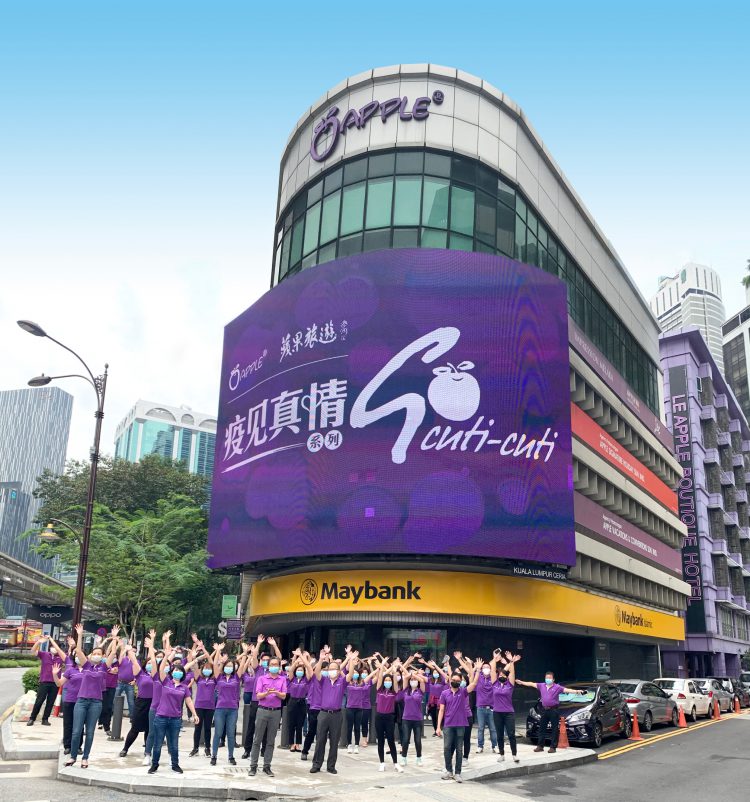
Lee San and Applenians ready to fight on with an undying spirit.
Experts in learning and copying
For this I sought the guidance of my teacher Professor Kuribayashi who very cautiously answered my question: The Japanese people are very good at learning, copying and modifying Western know-how and ideas. Along the way this has somewhat created a Japanese work attitude fairly similar to that in the West, in particular major European powers. At the same time, it has also fine tuned the “Japanese spirit” unique to the people: staying focused, seriousness, fighting spirit, and perseverance.
Unfortunately often due to overwork, they have to let go of many good things in life.
I pursued further in perplexity: Does that mean the so-called “Japanese spirit” is all about meticulousness minus versatility?
Anyway, we have to emulate the Japanese people’s dedicated workplace attitude as well as their courage in admitting their mistakes. Such attributes should be ingrained into our corporate management culture.
Starting own career upon return
After graduating from university in Japan, I straight away started my own business upon returning to Malaysia. Initially my business was geared towards “Japan tour specialist”, vowing to “give my best shot” to sell Japan’s food and fun to everyone visiting my shop.
The increasing interactions with my Japanese partners have slowly shaped the company’s corporate culture, and the dedication and accountability attitude of the Japanese people has helped improve our Japan tours. We later succeeded in securing the first ever chartered flights from Kuala Lumpur to Hokkaido!
I have suitably introduced the Japanese management practice philosophies to my company, including: improvement, versatility, warmth, bowing, faith and omotenashi, among others. Reassuringly, these qualities have reinforced the “proud to be Apple-nian” cohesiveness among our staff.
From Kangkar Bahru primary school in my hometown Yong Peng, to Tokyo International University, I had taken up countless of part-time jobs throughout my schooling years. And in each stage I remained as persistent and as dedicated in my work attitude as ever.
As a self-employed man, a business owner, tour guide, tour leader, author, and public figure, my spirit has remained as indomitable as ever. And my story will begin right here, from where it will go on and on…
Here it goes… Stay tuned!
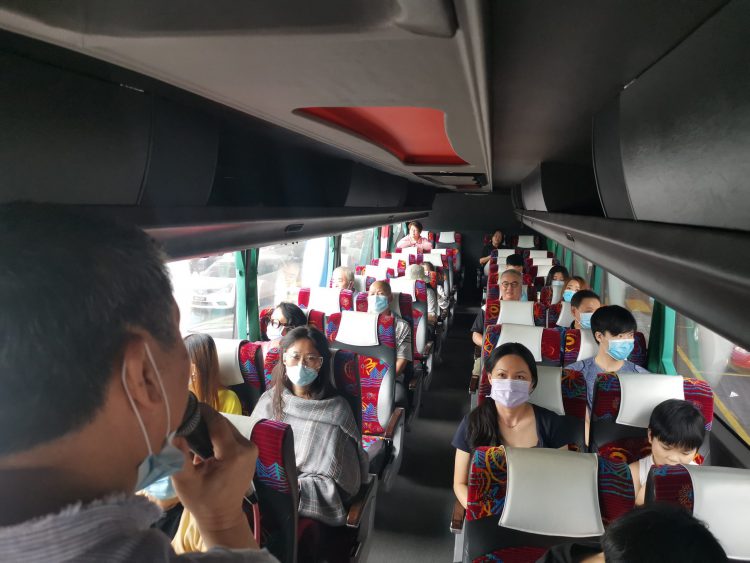
July 3, 2020, Lee San back with his mic during the brief respite from the pandemic lockdown.
(First published in Nanyang Siang Pau on September 15, 2020.)
English Version Original Source from MYsinchew, 25 July 2021
More articles in the Isshōkenmei series.
(Lee San is Founder and Group Executive Chairman of Apple Vacations. He has traveled to 132 countries, six continents, and enjoys sharing his travel stories and insights. He has also authored two books.)
全球超过80000家酒店,Apple101助您轻松订房,出行无忧,绝对优惠价。入住期间付款,多数客房可免费取消!
